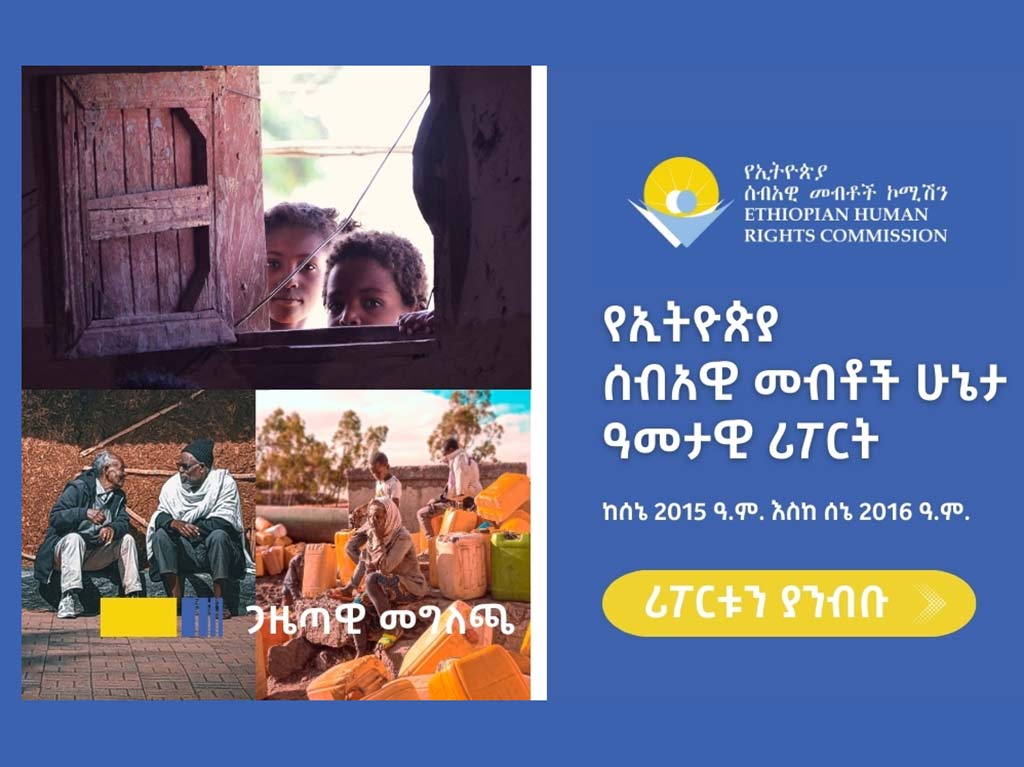The report, which covered the period from June 2023 to June 2024 and is based on data and evidence collected during the fiscal year, contains details of progress, concerns, recommendations, issues requiring further attention, the human rights situation, care for detainees and prisoners, monitoring of the sixth round of partial elections and reelections held in four regions, and complaints submitted by ESMECO and continental and international humanitarian organizations.
The report highlighted the adoption of the Transitional Justice Policy as one of the key events and achievements to improve the human rights situation recorded during the analyzed period, and considered that although the peacemaking activities initiated with the Armed forces are encouraging, their processes must be transparent and inclusive of all stakeholders, including victims, to be sustainable.
Regarding armed conflicts, attacks or security violations in most regions of Ethiopia, the Commission expressed concern about the deaths and injuries of civilians as a result of actions taken by the armed forces and the police.
ESMECO warned that the internally displaced persons who are refugees in areas of armed conflict, especially women and children, people with disabilities and the elderly, are vulnerable to the shortage of food and basic humanitarian approval, to the disruption or interruption of health and education services and to other additional social and economic measures.
During the period covered by the report, extrajudicial killings of civilians during such events and in some non-conflict situations continue to be a cause for concern.
In addition to the armed confrontation in the Amhara and Oromia regions and the human rights violations that occur in that context, concerns about attacks on civilians are an issue that requires close attention.
jg/llp/jha/nmr










